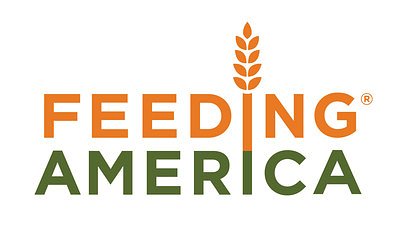
Corporate America & Food Banks Unite as SNAP Benefits Wane, Hunger Rises
A surge in corporate donations to Feeding America highlights a growing need as pandemic-era SNAP benefits expire and economic pressures mount, leaving millions vulnerable to food insecurity.
Corporate America & Food Banks Unite as SNAP Benefits Wane, Hunger Rises
National – A multi-million dollar campaign spearheaded by several major corporations and amplified by the nation’s largest hunger-relief organization, Feeding America, is aiming to address a growing crisis of food insecurity. The initiative comes as pandemic-era expansions to the Supplemental Nutrition Assistance Program (SNAP) expire, economic pressures increase, and millions of Americans struggle to put food on the table.
Companies like Walmart, Food Lion, and Maverik have pledged substantial donations, leveraging their extensive networks to distribute aid through Feeding America’s 200-strong food bank system. But the effort isn’t simply about writing checks. It’s a response to a complex interplay of factors, including dwindling government assistance, rising food costs, and persistent systemic inequalities.
A Perfect Storm of Need
The timing of this surge in corporate giving is critical. The expiration of emergency SNAP benefits, implemented during the height of the pandemic, has had a significant impact. “We’ve seen a clear correlation between the phasing out of those benefits and an increase in demand at local food banks,” explained a spokesperson for a regional food bank. “People who were previously able to make ends meet are now finding themselves needing assistance.”
This trend is corroborated by Feeding America’s own data, which shows a noticeable uptick in the number of people seeking food assistance in recent months. The situation is further complicated by ongoing economic challenges, including high inflation and stagnant wages. “For many families, even a small unexpected expense can derail their budget and force them to choose between food and other essentials,” stated a policy analyst specializing in food security.
Beyond Charitable Giving: Addressing Systemic Issues
While the corporate contributions are undoubtedly welcome, experts emphasize that they are not a substitute for robust government programs. “Charitable giving is important, but it’s a band-aid solution,” asserted a researcher studying food insecurity. “We need systemic changes to address the root causes of hunger, such as poverty, inequality, and lack of access to affordable housing and healthcare.”
The research underscores that food insecurity is disproportionately concentrated among certain populations, including low-income families, people of color, and those living in rural areas. These communities face a complex web of challenges that make it difficult to access nutritious food, even when assistance is available.
A Localized Response with National Reach
The current campaign reflects a commitment to both national reach and localized impact. Companies are leveraging their existing infrastructure and partnerships to distribute aid efficiently, targeting communities with the greatest need. Maverik, for example, is directing a portion of its $1 million donation to the Food Bank of the Rockies, serving Colorado and Wyoming. Walmart’s initiative involves mobilizing its vast network of stores and suppliers across the country.
Food Lion, through its longstanding “Food Lion Feeds” platform, is directing resources to its 10-state operating region. This localized approach allows companies to tailor their efforts to specific community needs and leverage existing relationships with local food banks and feeding agencies.
“It’s not just about sending money to a national organization,” explained a representative for Fresh Thyme, another participating company. “It’s about working with local food banks to ensure that aid reaches the people who need it most, in the communities where they live.”
SNAP Disruptions & the Government Shutdown Factor
The situation was recently exacerbated by a brief government shutdown in November, which threatened to halt SNAP benefits entirely. “The uncertainty around SNAP funding created a surge in demand at local food banks,” said an anonymous source working at a food bank in Wisconsin. “People were worried about losing their benefits, so they turned to us for help.”
The incident highlighted the vulnerability of the food safety net and the potential consequences of political gridlock. While the shutdown was short-lived, it served as a stark reminder of the importance of stable funding for federal nutrition programs. Experts warn that future disruptions could have even more severe consequences.
Looking Ahead: A Sustainable Solution?
While the current campaign provides much-needed relief, the long-term sustainability of these efforts remains a concern. Experts emphasize the need for a multi-faceted approach that combines charitable giving, government programs, and systemic changes. “We need to invest in programs that address the root causes of hunger, such as job training, affordable housing, and access to healthcare,” argued a policy advocate. “We also need to strengthen the food safety net and ensure that everyone has access to nutritious food.”
Companies involved in the current campaign are exploring ways to deepen their commitment to fighting hunger beyond short-term donations. This includes initiatives such as reducing food waste, supporting local farmers, and promoting healthy eating habits. “We see this as an opportunity to create a lasting impact,” said a representative for Wawa. “We’re committed to working with Feeding America and other partners to address the issue of food insecurity for the long term.”
The challenge is significant, but the current collaboration between corporate America, food banks, and advocacy groups offers a glimmer of hope. By working together, they can help ensure that everyone has access to the food they need to thrive. The increased awareness and commitment resulting from this effort are crucial steps toward building a more sustainable and equitable food system. The future hinges on a comprehensive and collaborative approach to eradicating hunger and ensuring food security for all.
